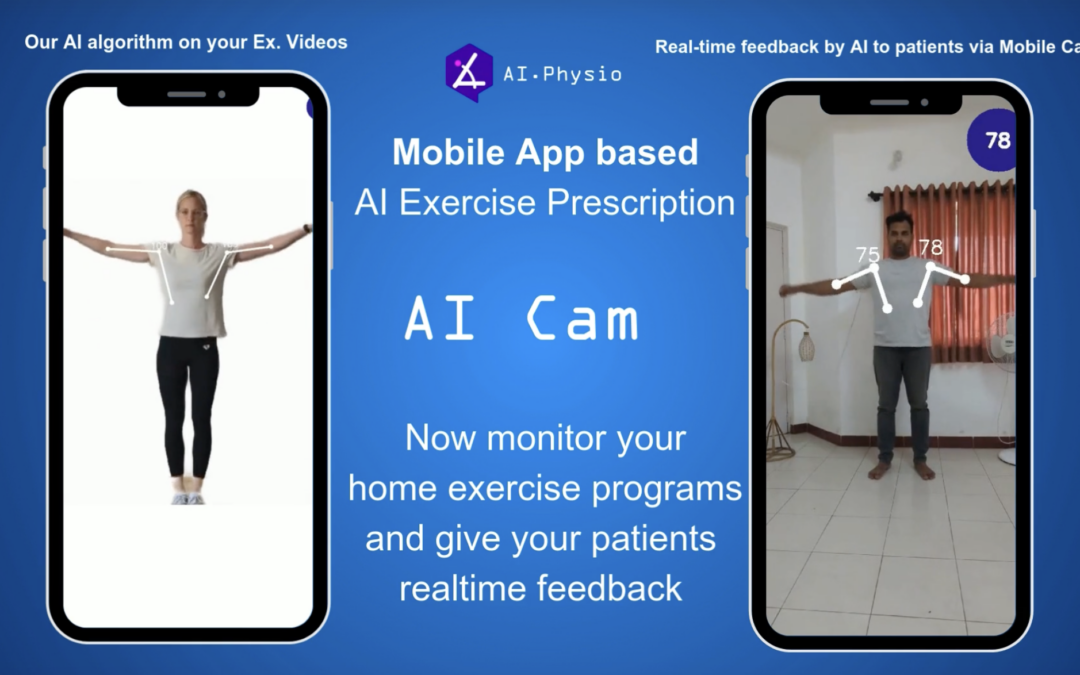We’ve all heard how Artificial Intelligence (AI) is poised to reshape physiotherapy. From note-taking to automated correspondence, the early applications are already making waves. But what if AI could go further—supporting patients as they perform their home exercises and giving real-time feedback on their technique? That’s precisely the innovation being introduced by AI.Physio, a startup set to launch at the World Physiotherapy Congress next month in Tokyo, Japan.
At the heart of AI.Physio is Indian-trained and currently a German-based physiotherapist Ram Prakash, who has combined clinical experience with a visionary approach to digital health. The AI-powered virtual assistant not only streamlines appointment scheduling and patient assessments, but also supports guided exercise execution using the patient’s own device—yes, even a mobile phone.
What’s especially remarkable is that the app provides real-time, intelligent feedback using the device’s camera—a feature that enhances adherence and accuracy in rehabilitation exercises. Additionally, physiotherapists can capture posture or joint angles via a still image (Mobile phone photo-capture), allowing for ongoing documentation and progress tracking.
Naturally, any use of cameras raises concerns about privacy. That’s why AI.Physio has built its platform with privacy-first architecture. Sensitive data is protected using device-specific private keys, ensuring that only the user’s device can identify the individual. For all AI computations, data is anonymized, and no identifying details are used in the algorithmic process. Communication remains end-to-end encrypted, and no footage or personal health data is stored without explicit consent. The balance of tech advancement and patient data security has been a foundational principle of this innovation.
Ram’s journey into health tech began with a mission to support smaller physiotherapy clinics in India. His earlier venture in affordable practice management software called Physio Plus Tech, empowered independent practitioners to run their businesses from their phones—an initiative born from a deep understanding of the financial and practical hurdles many clinicians face.
Another exciting development is an AI-powered voice chatbot currently in progress, designed to interact with patients using natural conversation to perform initial clinical assessments. This not only saves time for the clinician but ensures structured, consistent data collection. The best part? The assessment logic and conversational style of the chatbot are fully customizable by each physiotherapist, allowing it to reflect the specific protocols and preferences of their practice. All collected data is automatically integrated into the clinic’s practice management software, closing the loop between AI-led triage and clinician-led care.
Behind the tech lies another impressive mind: Balaprasad, the company’s technical co-founder and a driving force behind the AI engine. With deep expertise in machine learning, secure health data handling, and scalable mobile technologies, Balaprasad is the kind of quiet genius every visionary founder dreams of partnering with. His contributions have enabled the platform to deliver intelligent, personalized feedback while staying lightweight enough to function on low-spec smartphones—making advanced physiotherapy support accessible, even in remote areas.
Although AI.Physio launches from a foundation in India and Germany, Ram’s vision is decidedly global. The platform supports multilingual communication in over 100 languages, and its flexible API integrations make it compatible with most existing practice management systems.
You can learn more about the project at www.ai.physio. And if you’re attending the World Congress in Tokyo, drop by the exhibition hall and meet Ram and his team. What they’re building is not just a product—it’s a glimpse into the future of physiotherapy.


Recent Comments